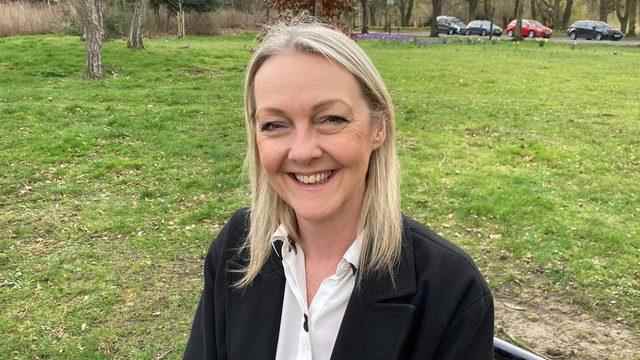Menopause enters women’s lives with 40 different symptoms, including anxiety, anger, memory problems, irregular and heavy periods.
Most women feel lost and alone in this process; She does not know from whom, where and how to get help.
BBC’s Alex Pope investigated whether there is a way to make women’s life easier during the menopause process.
Isabel Kelly was in her 30s when she entered perimenopause.
By the age of 42 her hot flashes had become unbearable; His stomach was constantly swollen and he was subject to unexpected electric shocks.
Like most women, she tried to get help from her family doctor.
Kelly, who lives in Bedford, England, told the doctor she wanted to make sure she didn’t go crazy.
The only thing the male doctor did was administer menopausal hormone therapy, known as hormone replacement therapy (HRT).
But later on, a friend told me about an unheard-of menopause clinic in Bedford.
Lesley Quinn is behind the clinic, which was established in February 2020.
Quinn is also a head nurse who has battled menopause herself.
The clinic, run by the NGO Bedford Doctors on Call (Bedoc), is one of the rare medical centers operating under the UK National Health System.
The center admitted only six patients at first, this number increased to 31 two years later, with 27 additional follow-ups.
Kelly is one of the first patients of this clinic.
“Hundreds of messages”
Meeting Lesley and switching hormone therapy was a turning point in her life, according to Kelly.
Just one month after she started going to the clinic, her skin itching and sleep problems disappeared.
“This stage of life is still considered taboo,” says Kelly, who says it’s important for women to talk about their symptoms.
Hundreds of women sent a message to Kelly, who shared her experiences on Instagram, that they had experienced the same thing.
Sam Price, 54, lists his symptoms as “a level of anger that makes you want to punch people in the face”, heavy periods, night sweats, hot flashes and emotional disorientation.
Price thinks he has not received the necessary support from his family doctor.
Explaining that talking with her friends, family, employers and medical professionals helped, Price discussed the issue with her colleagues after watching documentary producer Davina McCall’s documentary on menopause and helped change the workplace’s policy on this issue.
This includes changing the temperature of the office, enabling change of duties, providing space for employees to change their clothes during the day.
“Speak up, ask questions you’ve pushed aside, it’s about listening to your body,” says psychotherapist Rachel Young.
Menopause was like that a few years ago as well as menopause today, according to Young:
“We are the first generation to talk about it, this change has always been a whispered but not shared experience.”
Kelly believes that behavior still needs to change with regard to menopause.
But it is possible to see the change taking place:
“You used to think it would be in your 50s and 60s, not your 30s and 40s like me. How can you get help if you don’t start talking about it?”
